Over the last several weeks, like many of you, I have been gripped by news of the coronavirus (COVID-19) pandemic. I spend hours reading the medical research, reviewing the statistical models, and following the first hand accounts of doctors and patients. Normally, I am not one disposed to anxiety, panic, or overreaction, but I have to admit, this virus scares the crap out of me. It’s not just that this is a novel virus to which none of us has immunity or that there are no treatments, or that it disrupts an absolutely critical physiological system, the renin-angiotensin aldosterone system (RAAS), or that it is highly contagious, those variables alone make COVID-19 dangerous. That would be sufficient to induce panic in anyone under normal circumstance, but these are not normal circumstances. The virus seems to have timed its appearance perfectly so as to exert the most damage; when population ill-health is soaring and world economic, political, and health systems are crumbling. We are fundamentally ill-prepared to confront such a threat. And this is terrifying.
COVID Exposes Our Weaknesses
As a way to slow the infection rate and spare hospital demand, social isolation and quarantine policies have been implemented around the world. All but essential industries have shut down, including non-essential healthcare e.g, non-emergency or non-COVID related healthcare. Governmental response, in the US at least, and in some other countries, has been unorganized at best, and blinded by malice, incompetence and corruption at worst. Inasmuch as healthcare systems here in the US were already at capacity and frequently more aligned with economics than health, this crisis will overwhelm even the best of them.
With poor infectious disease capabilities, the risk to the health and life of frontline practitioners is high. This will be magnified by skewed economic interests of hospital financiers. We are likely also to lose a substantial number of primary care physicians to this crisis, not necessarily to the illness itself, but to the economic restructuring that is inevitable. Medical practices whose economic stability rely on complicated, services-based billing, will become financially infeasible when those services cannot be ministered and they will shutter. Given that here in US we already have fewer per capita physicians than many other countries, this becomes an increasingly risky prospect for a population that has learned to rely on these services.
We are seeing hints of this economic collapse already in the hospitals including those not yet hit by the COVID wave. In anticipation of lost revenue from elective procedures, hospitals are canceling contracts with their employees, including those who will risk their lives to care for COVID patients. In the hospitals where COVID is building or has already hit, where the financial output required to treat this virus is enormous, especially with supply profiteering encouraged the administration, and where once again, elective procedures have been canceled, insolvency is close (here, here, here). Of course, the hospitals and the healthcare industry are not blameless in this impending financial fiasco. For decades now, unethical and outright corrupt medical billing practices have padded revenue streams by upcharging and upselling every single aspect of healthcare. Does a single aspirin really need to cost $25? It does indeed, if one’s financial wherewithal rests on a convoluted reimbursement system that more closely aligns with grift than legitimate cost accounting.
This is, of course, on top of the very real risk of morbidity and mortality facing all healthcare personnel on the frontlines of this pandemic. Everyone from the cleaning staff to the physicians is at risk and yet, the solution reached by many seems more skewed towards protecting the bottom line rather than employees (here, here, here). While the costs of this pandemic are staggering, they are made infinitely worse by the economics of our current model of for-profit medicine. This does not bode well for the future of American healthcare, and perhaps, if there is an upside to this crisis, that is it. When we reach the other side, perhaps we can create a healthier and more sustainable model of healthcare, but we must survive this crash first.
We Are On Our Own With COVID
To survive, we must recognize that we are very much on our own with this pandemic, not just for our response to COVID but for general health as well. That is, we will be mostly left to treat ourselves in isolation unless or until we either come through to the other side or require hospitalization. We cannot simply go to our primary physicians for assistance, not only because there are no known medically effective treatments available for COVID, though many have been proposed, but primarily because many physicians are no longer available. Some have switched to telehealth, but the overwhelming demand posed by this virus has severely constricted already inundated practices. Considering that it took anywhere from 6 – 66 days to see a family care physician prior to COVID, it should not be surprising that a pandemic of this scale would further limit physician availability.
There is also the risk we present to everyone who might care for us should we seek out medical attention early in the disease process. Everyone whom we would come contact with would be exposed, particularly in the US where protective gear is limited. Finally, if we require hospitalization, the outcome is not always positive, especially if we require mechanical ventilation. According to the current data from New York, COVID related hospitalization corresponds with an approximately 18% mortality rate. The mortality rate relative to all cases, is much lower of course. Drilling down a bit, if the disease process progresses to the need for mechanical ventilation, the mortality rate skyrockets. Those data are not available yet here, but one report from China found 97% of COVID patients requiring ventilation died. In general, mechanical ventilation outcomes are not good, with mortality rates ranging from 30-40%.
In addition to the increased patient mortality associated with mechanical ventilation, it is here where physicians and other healthcare personnel are most at risk to contract COVID. From other pandemics, we know that risk of contracting the viral contagion ranged from 2.8-6.6X higher in practitioners involved in intubation and subsequent care for these patients. Given the lack of protective gear in the US, along with the higher transmissibility rate of COVID compared to some other viral pandemics, the risk to all healthcare personnel is much higher. And yet, the employers of these institutions are cutting contracts, reducing pay, refusing hazard pay of their frontline personnel, and in many cases, have yet to provide sufficient protective gear, with some hospitals even preventing staff from wearing self-purchased protective gear. This is unconscionable, and yet, not completely unexpected given the perverted financial and ethical mores of the American healthcare industry.
Not since the early frontier days have we Americans required medical self-sufficiency, or any self-sufficiency. We like to portray ourselves as rugged individualists, bootstrappers and the like, but in reality, we are deeply dependent upon each other. Recognizing our fundamental interdependence with each other is not such a bad thing. Where it becomes problematic is when we place our faith and our health into the hands of those whose primary interest is financial. This is what COVID is teaching us. The question is, are we listening?
If We Are On Our Own, We Need A Plan
With the current state of politics in the US, it seems likely that many of us will have to face this crisis without external assistance. The question is how do we do this? Or more importantly, how are you going to prepare for your survival. It sounds like I am being overly dramatic, and I hope I am, but in the event things continue to go south, we all need a plan. So these are the questions I pose. First, how are you going to minimize infection rates – yours, your family’s and your community’s. Second, if you become infected, what is your survival plan? Simply hoping that you will have one mild cases may not work. If you get lucky, sure, but if not, how do you plan to survive this illness? Think about it. What will you need? Do you have supplies in storage for the quarantine? If you have a family, have you decided how to tackle possible co-infection? What is the plan? Third, if you should become severely ill and require hospitalization, what is the plan then? How will you get there? Knowing that if it progresses to that point that you will put into isolation at the hospital, and you may or may not recover, have you made the appropriate arrangements for yourself and/or your family? If you recover, what is the plan then? And finally, considering the impact of this pandemic on the structure of healthcare in general, what is the plan to manage existing conditions, now and going forward? Are there things you might do differently because you might not have access to physicians? These are questions we must all ask ourselves. And who knows, maybe if we do this right, we’ll come out of this crisis, healthier and happier than before. Please share your plans below.
We Need Your Help
More people than ever are reading Hormones Matter, a testament to the need for independent voices in health and medicine. We are not funded and accept limited advertising. Unlike many health sites, we don’t force you to purchase a subscription. We believe health information should be open to all. If you read Hormones Matter, like it, please help support it. Contribute now.
Yes, I would like to support Hormones Matter.
Image by Mabel Amber from Pixabay


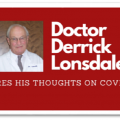



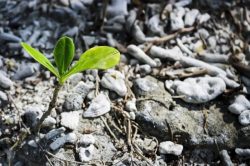
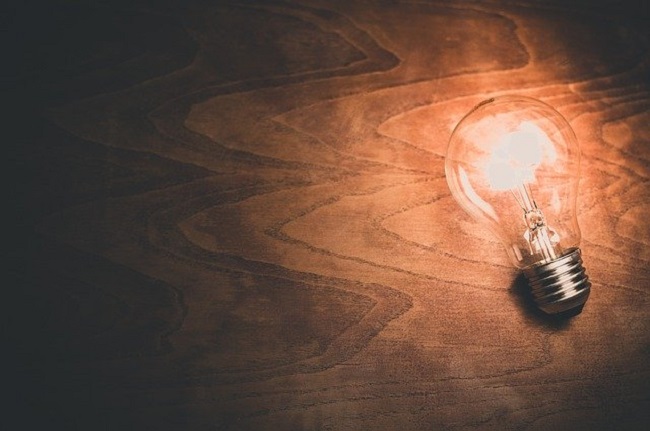
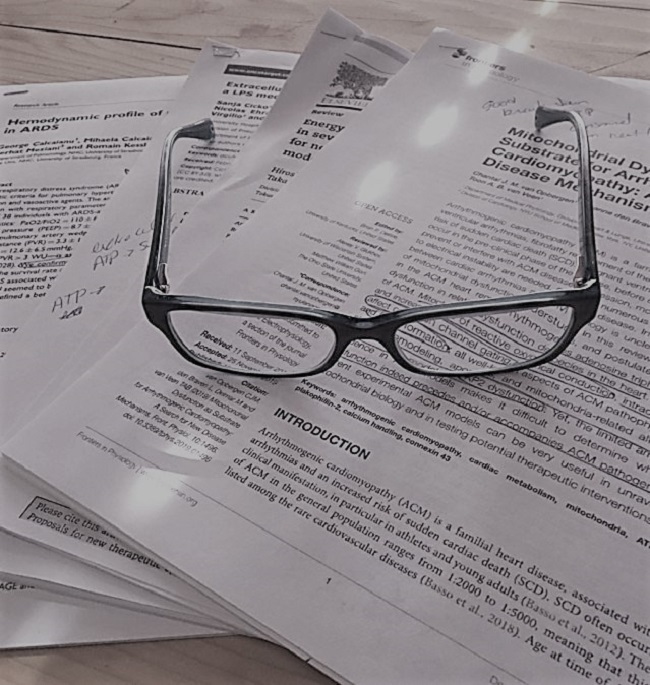


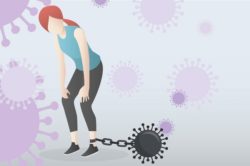
Dr Paul Marik, MD has what looks like an excellent protocol to treat COVID-19. He’s Chief of Pulmonary and Critical Care Medicine Eastern Virginia Medical School, Norfolk. The protocol includes IV Vitamin C, thiamine, Mg.
https://www.evms.edu/covid-19/medical_information_resources/